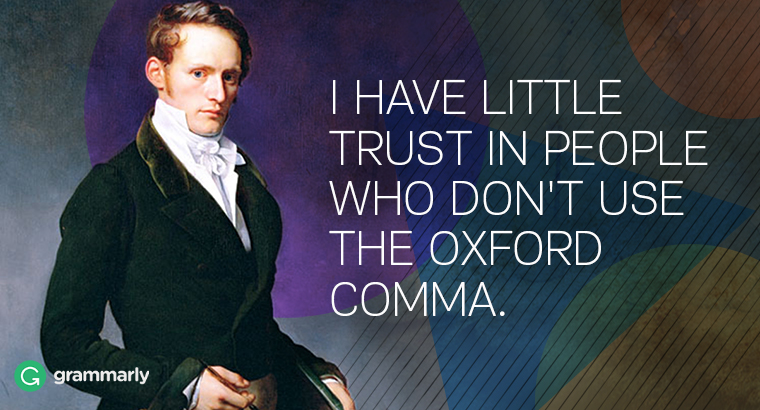|

This article was updated on 09/26/20.
It is often said that the English language is the hardest to master, at least as a second language. This is hardly surprising given the vast number of colloquialisms, spelling variants, accents, and word-construction options. (see, I just used the Oxford comma).
English is a fascinating language in that it has roots in many different languages and the origins of many words have been forgotten. For example, did you know that Baltimore is an Anglicization of the Irish Baile an Tí Mhóir, which means “town of the big house?” The same applies to grammar. Few people know that the ampersand character was once in the alphabet, but alas, it was banned long ago. More the pity.
But what is the Oxford comma? Oxford Living Dictionaries tells us, ” The Oxford comma is an optional comma before the word ‘and’ at the end of a list: We sell books, videos, and magazines. It’s known as the Oxford comma because it was traditionally used by printers, readers, and editors at Oxford University Press. Not all writers and publishers use it, but it can clarify the meaning of a sentence when the items in a list are not single words: These items are available in black and white, red and yellow, and blue and green.”
Should You Use the Oxford Comma or Not?
Ah, one of the great grammatical debates. There are writers on both sides of the fence and very few are convinced to hop over that fence of their own volition.
Largely it is a point of personal preference. I like to use it because it lends an air of clarity to the prose; no room for the reader to guess the writer’s intent. Opponents are likely to cite brevity as a reason to omit it. But seriously fellow scribe, how much real estate does one more comma consume?
Preferences aside, most of us write for money or grades and we must bow to authority. The Oxford comma is stylistic, which simply means some style guides, university professors, and employers require its use while others do not. For example, AP Style, the style guide that many newspaper reporters follow, doesn’t demand the use of the Oxford comma. That said, your employer may demand it for the sake of publication consistency.
So, each writer must make up his own mind given the circumstances. Meanwhile, the great debate over the Oxford comma rages quietly on.
Looking for more great content? Visit our partner sites:
I offer article and blog-writing services. Interested? Hire Me!
Did you find this article helpful? Objective journalism is becoming harder to find all the time. Please help with a small donation of $3 or more to keep this site free for all. Thank you!
Visit Kelly’s profile on Pinterest.





2 Replies to “What is the Oxford Comma and Why Care?”